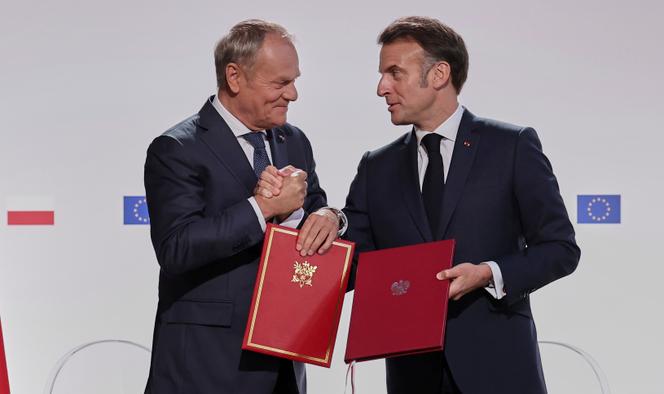
On Friday, May 9, France and Poland signed an unprecedented cooperation treaty with significant defense stakes at the Stanislas Palace, the French city of Nancy's town hall. Symbolically, the ceremony took place during the 80th-anniversary commemorations of the end of World War II, as Paris and Warsaw now stand as the two main conventional military powers in the European Union. At the same time, Vladimir Putin was celebrating the surrender of Nazi Germany alongside Chinese President Xi Jinping in Moscow.
While the treaty includes cooperation in economic, agricultural and educational fields, both parties consider its military dimension central. "Everyone learns from history (...). I am profoundly convinced (...) that France and Poland will be able to count on each other in all circumstances, good and bad," said Polish Prime Minister Donald Tusk at the end of the signing ceremony. "This is a new page (...). This treaty commits us to irreversible solidarity," emphasized French President Emmanuel Macron.
The document indeed provides a mutual assistance clause. "In case of armed aggression on their territory, the parties assist each other, including through military means," stipulates the publicly released text. "This aid and assistance will be implemented" within the framework of Article 5 of the North Atlantic Treaty and Article 42 of the European Union (EU) Treaty, the document explains, referring to these clauses that already foresee such mechanisms at the level of European allies. This treaty does not "replace NATO [North Atlantic Treaty Organization] or the EU," it "operationalizes this existing link," said Macron.
You have 67.7% of this article left to read. The rest is for subscribers only.